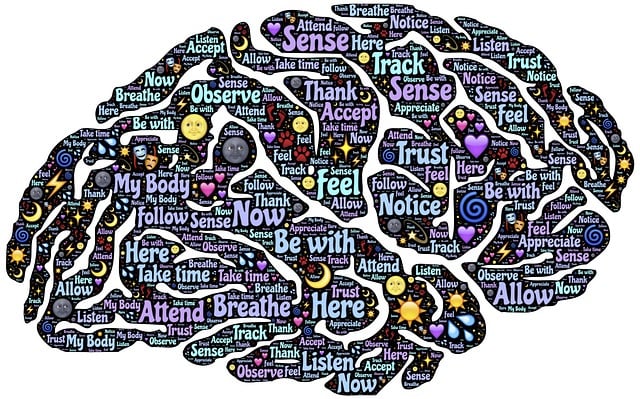Understanding Mental Health Data is crucial for effective Boulder Couples Counseling Therapy. This involves gathering diverse information from multiple sources, including clinical records, surveys, and wearable technology, to capture symptoms and contextual factors. Advanced statistical methods help therapists analyze large datasets, uncovering relationships between variables that influence therapeutic outcomes. Cultural sensitivity and policy analysis ensure accurate interpretation of data, enabling personalized treatment plans tailored to diverse client populations. Ethical guidelines, including confidentiality, informed consent, and burnout prevention for providers, are essential in this nuanced field.
Mental health data analysis is a crucial step towards enhancing therapeutic outcomes, especially within practices like Boulder Couples Counseling Therapy. Understanding and interpreting this data allows therapists to tailor strategies for better patient care. This article explores mental health data collection, delving into various sources, and employing analysis techniques to gain profound insights. We’ll discuss how these methods translate into actionable results, while also highlighting ethical considerations in interpretation, ensuring responsible practices in the field of counseling.
- Understanding Mental Health Data: Collection and Sources
- Data Analysis Techniques for Deeper Insights
- Interpreting Results: Supporting Effective Therapy Strategies
- Ethical Considerations in Mental Health Data Interpretation
Understanding Mental Health Data: Collection and Sources

Understanding Mental Health Data is a multifaceted process that forms the backbone of effective Boulder Couples Counseling Therapy and broader mental healthcare services. The collection of data begins with identifying relevant sources, which can include clinical records, surveys, interviews, and self-reported measurements. These diverse tools capture not only symptoms but also contextual factors such as social support networks, lifestyle choices, and environmental influences, all of which contribute to an individual’s mental well-being or distress.
The integration of data from various sources, including the growing realm of digital health records and wearable technology, offers a holistic view of clients’ mental health. This comprehensive approach, coupled with cultural sensitivity in mental healthcare practice, allows professionals to interpret data accurately. By understanding the nuances of different populations and their unique challenges (e.g., Mental Health Policy Analysis and Advocacy), therapists can tailor interventions, ultimately fostering inner strength development for individuals seeking support, such as those engaging in Boulder Couples Counseling Therapy.
Data Analysis Techniques for Deeper Insights

In the realm of mental health data analysis, various techniques can unveil profound insights and contribute to effective treatment strategies. One such powerful approach is applying statistical methods to interpret trends and patterns within large datasets. By utilizing advanced analytics, researchers and therapists in Boulder Couples Counseling Therapy can gain a deeper understanding of client profiles and treatment outcomes. This involves exploring correlations between different variables, such as connecting emotional intelligence scores with self-esteem improvement rates, which may reveal significant relationships that influence therapeutic success.
Cultural sensitivity in mental healthcare practice is also enhanced through data analysis. By examining demographics and cultural backgrounds, therapists can tailor their approaches to meet the unique needs of diverse client populations. For instance, identifying specific cultural factors affecting clients’ mental health could lead to more inclusive and effective treatment modalities, ultimately improving overall therapy outcomes. These analytical techniques, when applied thoughtfully, offer a comprehensive view, enabling practitioners to make informed decisions and deliver personalized care.
Interpreting Results: Supporting Effective Therapy Strategies

When analyzing mental health data, particularly within the context of Boulder Couples Counseling Therapy, interpreting results accurately is key to supporting effective therapy strategies. This involves examining trends and patterns in client responses over time, considering both qualitative and quantitative data. By delving into these insights, therapists can tailor their approaches, focusing on specific communication strategies that foster open dialogue and strengthen connections between partners.
The analysis should also highlight areas where clients demonstrate inner strength development, offering valuable insights into resilience-building techniques that can be integrated into ongoing therapy. Moreover, identifying burnout prevention mechanisms within the data allows therapists to proactively guide couples towards sustainable coping strategies, ensuring long-term mental well-being. Such a nuanced interpretation empowers therapists to create a personalized and impactful therapeutic journey for each unique couple.
Ethical Considerations in Mental Health Data Interpretation

In the realm of mental health data analysis and interpretation, ethical considerations are paramount. As Boulder Couples Counseling Therapy centers often deal with sensitive personal information, it’s crucial to uphold strict confidentiality and privacy standards. This includes obtaining informed consent from individuals or their legal guardians before collecting and analyzing data, ensuring secure storage of records, and adhering to legal and regulatory frameworks such as HIPAA in the United States. The interpretation of mental health data must also be unbiased and respectful, taking into account individual cultural backgrounds, beliefs, and experiences—a key aspect of Cultural Sensitivity in Mental Healthcare Practice.
Furthermore, burnout prevention strategies for healthcare providers are essential to maintain the integrity of data analysis. Mental health professionals must prioritize self-care to avoid emotional exhaustion, which can impact their decision-making processes. By incorporating coping skills development into their practice, therapists not only enhance their own well-being but also contribute to more accurate and empathetic interpretations of patient data. These considerations collectively ensure that mental health data analysis serves the best interests of individuals while upholding professional standards.
Mental health data analysis is a powerful tool that, when utilized ethically and effectively, can significantly enhance therapy strategies. From understanding collection sources to interpreting results, this process offers valuable insights for professionals like those at Boulder Couples Counseling Therapy. By applying appropriate techniques, therapists can tailor their approaches, ultimately fostering better outcomes for clients. Ethical considerations are paramount, ensuring data privacy and informed consent, but the benefits in improving mental health services are indelible.














